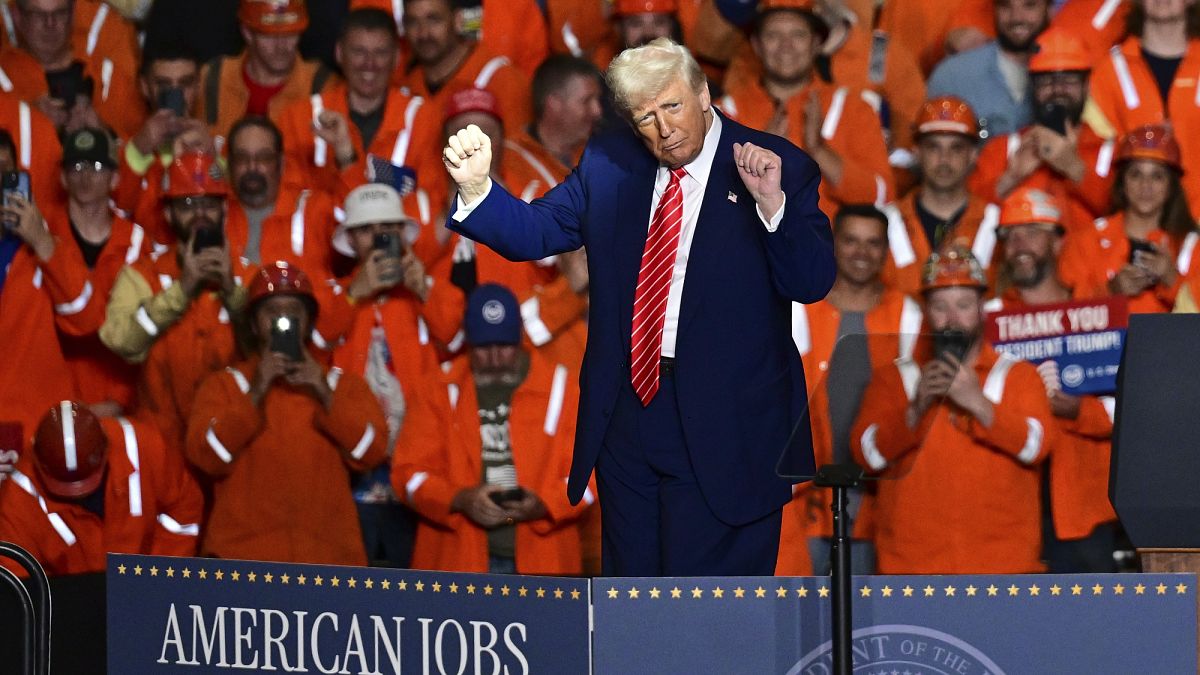

In a series of significant developments, global markets are witnessing a reshaping of their landscapes through strategic decisions and emerging opportunities. These movements are characterized by changes in power dynamics, new market ventures, and the intricate balance between global and local priorities.
One of the pivotal stories unfolding involves the US Steel buyout, where President Trump holds a unique veto power over certain aspects of the Nippon Steel takeover. This increased control extends to the appointment of an independent director, potentially influencing future presidential authority in corporate matters. This acquisition marks an important phase in the integration of bilateral business interests and reflects evolving governance in corporate affairs.
Meanwhile, in the energy sector, rumors swirled around a potential acquisition of BP by Shell, instigating a rise in BP’s share value. However, Shell has categorically denied any ongoing talks regarding this merger. This speculation highlights the nuanced volatility and perception-driven changes in the industry, prompting stakeholders to remain attentive to the strategic realignments and potential implications for market stability.
The European Union is making strides towards establishing a more competitive single market for space services. This initiative seeks to avert the risk of falling behind global leaders such as the United States and China. The proposed market applies to EU and non-EU operators, with a focus on bolstering small and medium-sized enterprises. This reflects Europe’s commitment to remaining a formidable player in the burgeoning space industry, driving innovation and collaboration across borders.
In the automotive sector, recent data has revealed a downturn in new car registrations in Europe, impacting industry stalwarts like Tesla. Conversely, Chinese manufacturer SAIC Motor is successfully expanding its market share within the region. This shift underscores the evolving preference for affordable and efficient vehicles and the dynamic competition between international automobile companies striving to capture the European market.
Amidst these developments, Chinese carmaker Chery Auto is contemplating the construction of a new plant in the UK. Faced with increased tariffs from both the UK and the EU, the company is adopting a ‘localization’ strategy, indicative of a broader move towards establishing regional manufacturing capabilities. This potential development is part of Chery’s strategic entry into the European market with its brands Omoda and Jaecoo, catering to the growing appetite for Chinese vehicles in the region.
Additionally, political dynamics within Europe present their own challenges as European Commission President Ursula von der Leyen navigates complex alliances. Her engagements with parties further to the right have sparked a backlash from socialists and liberals, indicating the intricate balance of political strategies within the European Union. These interactions are essential for advancing legislative agendas and require mindful navigation through diverse political landscapes.
As these stories unfold, it becomes clear that the international economic environment is in a period of transformation. Through strategic initiatives and careful governance, stakeholders aim to harness opportunities and address challenges presented by shifting geopolitical and market dynamics. These movements reflect an overarching narrative of change, opportunity, and resilience across global industries.
Source: {link}
